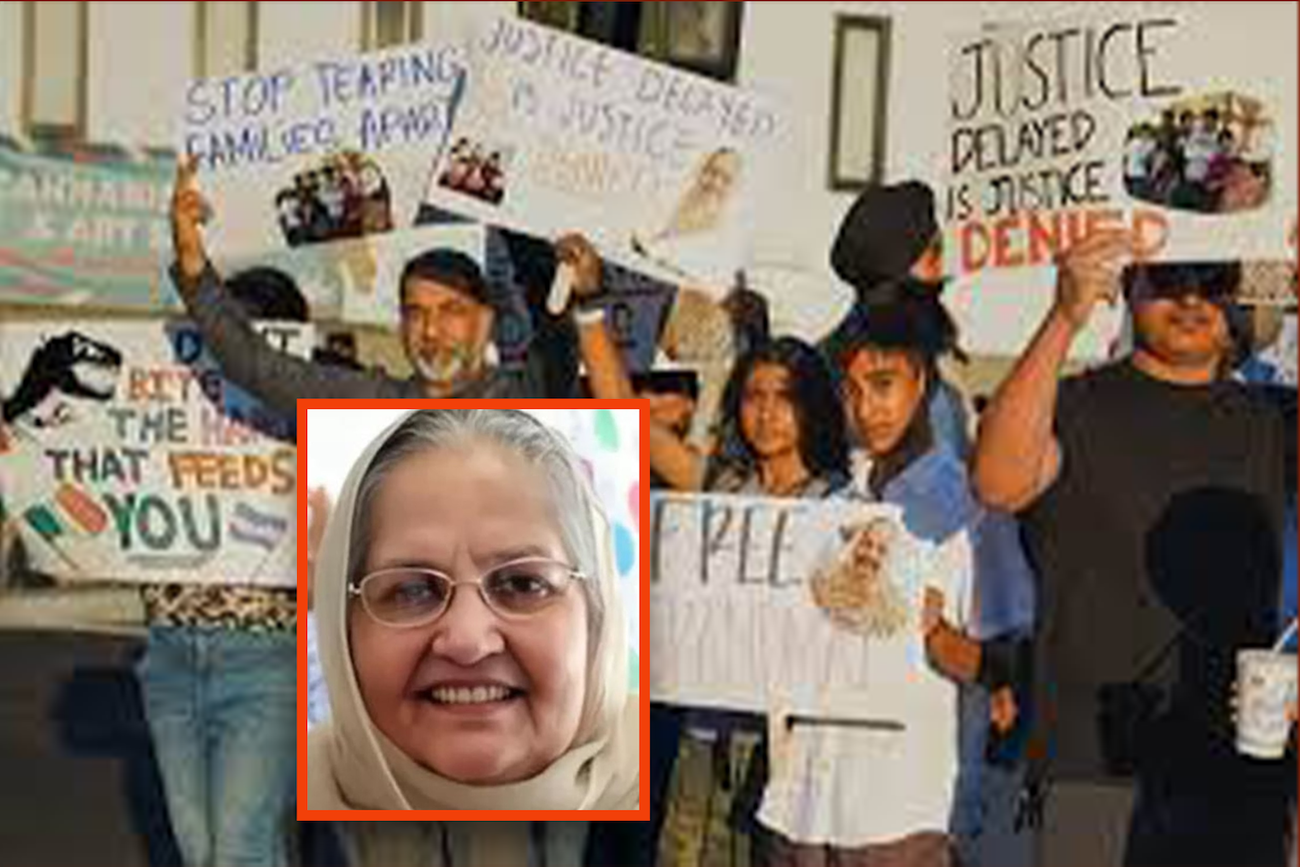When 73-year-old Harjit Kaur stepped off the plane at Delhi’s Indira Gandhi International Airport last Thursday, shackled and exhausted after a 15-day detention ordeal, she embodied the harsh new reality facing asylum seekers under the Trump administration’s immigration crackdown.
“After living for so long (in the U.S.), you are suddenly detained and deported this way; it is better to die than to face this,” Kaur told the Times of India after her arrival, her words reflecting not just personal anguish but the broader trauma experienced by thousands of deportees forced to rebuild their lives in countries they left decades ago.
A Life Built and Lost
Kaur’s story began in the early 1990s when she arrived in the United States seeking asylum. For more than three decades, she built a life in Hercules, California, in the San Francisco Bay Area, working as a seamstress for two decades and paying her taxes, according to NBC News. Like many asylum seekers, she was allowed to live and work legally while her claims were processed through the complex immigration system.
Her case reflects the experiences of hundreds of thousands of asylum seekers who arrive at America’s borders each year. Currently, more than 3.7 million asylum cases are pending in immigration courts, creating a massive backlog that can leave individuals in legal limbo for years or even decades.
Kaur’s asylum case was denied in 2012, but since then she had “faithfully reported” to ICE in San Francisco every six months for more than 13 years, according to Berkeleyside. After her appeals were rejected, she continued to stay and work in the U.S., as she lacked proper documents to return to India—a common predicament for many failed asylum seekers who become undocumented through circumstances beyond their control.
The Detention and Deportation
The end came suddenly. On September 8, 2025, Kaur was detained by ICE during a routine check-in in San Francisco and moved to the Mesa Verde Processing Center in Bakersfield by September 9, according to Visa Verge. Supporters emphasized she had no criminal record and had complied with immigration requirements.
The conditions of her detention drew sharp criticism from advocates and family members. Her attorney and community advocates described the treatment as inhumane, according to American Bazaar Online. After her deportation, Kaur alleged that ICE denied her basic necessities during detention, including adequate water and proper bedding.
Kaur’s asylum case was denied in 2012, but since then she had “faithfully reported” to ICE in San Francisco every six months for more than 13 years. After her appeals were rejected, she continued to stay and work in the U.S., as she lacked proper documents to return to India
About 200 people protested in El Sobrante on September 12 to demand her release from ICE detention, according to Richmond Side, but their efforts proved unsuccessful. On Monday, September 22, she was deported to India after living in the United States for 33 years.
Punjab’s Deportation Crisis
Kaur’s deportation is part of a larger pattern affecting the Sikh community, particularly those from Punjab. An estimated 200,000 Indians are now believed to be improperly documented in the U.S., with many coming from relatively affluent regions including Punjab, where several hundred deportees have been returned on U.S. military aircraft, according to PBS News.
On February 5, 2025, about 104 Indian nationals were deported to India on a military plane from the U.S., with the flight landing in Amritsar, Punjab. The immigrants were handcuffed and their legs were chained, highlighting the harsh conditions many deportees face during their forced return.
The reasons for seeking asylum vary, but many Sikh asylum seekers cite religious and political persecution. Many migrating men claim they are being persecuted by the Indian government due to their Sikh identity, hoping to get asylum on humanitarian grounds, according to The Print. Some report harassment by political opponents for attending rallies for minority Sikh-interest parties, with local police threatening rather than protecting them, according to The Daily Beast.
What Awaits Deportees
For deportees returning to India after decades abroad, the challenges extend far beyond the immediate trauma of forced removal. Unlike voluntary returnees, deportees often lack the financial resources, family connections, and social networks necessary for successful reintegration.
The situation is particularly complex for those who originally sought asylum based on claims of persecution. While India officially accepts its returning nationals, deportees may face stigma, economic hardship, and, in some cases, the very conditions they originally fled.
The United States has seen an influx of immigration and asylum-seekers from India—including from Punjab specifically—due to a range of complex political, social, and economic factors, according to the Sikh Coalition. This ongoing migration pattern suggests that the root causes prompting people to seek asylum remain unresolved.
Community Response and Advocacy
See Also
The Sikh community in California has rallied around Kaur’s case, viewing it as emblematic of broader immigration enforcement practices. The Sikh Coalition noted that Kaur had been “faithfully” attending regular ICE check-ins before her detention.
Her case has become a focal point for criticism of Trump administration policies. While Trump has stated he wants to deport the “worst of the worst,” critics argue that immigrants without criminal records who follow due process are also being targeted. Kaur’s case exemplifies this concern—a grandmother with no criminal history who had been complying with immigration requirements for over a decade.
The Human Cost of Policy
Beyond the policy debates lies a human story of profound loss. Kaur spent more than half her life building a community in California, contributing to the local economy through her work, and establishing deep roots in American soil. Her deportation represents not just the removal of an individual, but the severing of family ties, community connections, and decades of American life.
The psychological impact on deportees is often severe. Mental health experts note that forced removal after decades of residence can trigger depression, anxiety, and a sense of profound displacement. For elderly deportees like Kaur, the challenges are particularly acute, as they must navigate unfamiliar bureaucracies, healthcare systems, and social structures in countries that may have changed dramatically since their departure.
A System Under Strain
Kaur’s case highlights fundamental tensions within America’s immigration system. The backlog of asylum cases means that individuals can spend decades in legal limbo, building lives and families while their cases slowly wind through overcrowded courts. When those cases are eventually denied, the human cost of enforcement becomes enormous.
The broader implications extend beyond individual cases. The aggressive deportation policies may deter future asylum seekers from reporting to authorities, potentially driving vulnerable populations further underground. For communities like the Sikhs of Northern California, the message is clear: even compliance with immigration requirements offers no guarantee of protection from removal.
As deportation flights continue to carry longtime American residents back to India and other countries, the debate over immigration policy takes on deeply personal dimensions. For Harjit Kaur, now trying to rebuild her life in Delhi at age 73, the American dream has become a distant memory, replaced by the harsh reality of starting over in a homeland that may no longer feel like home.
This story was aggregated by AI from several news reports and edited by American Kahani’s News Desk.

